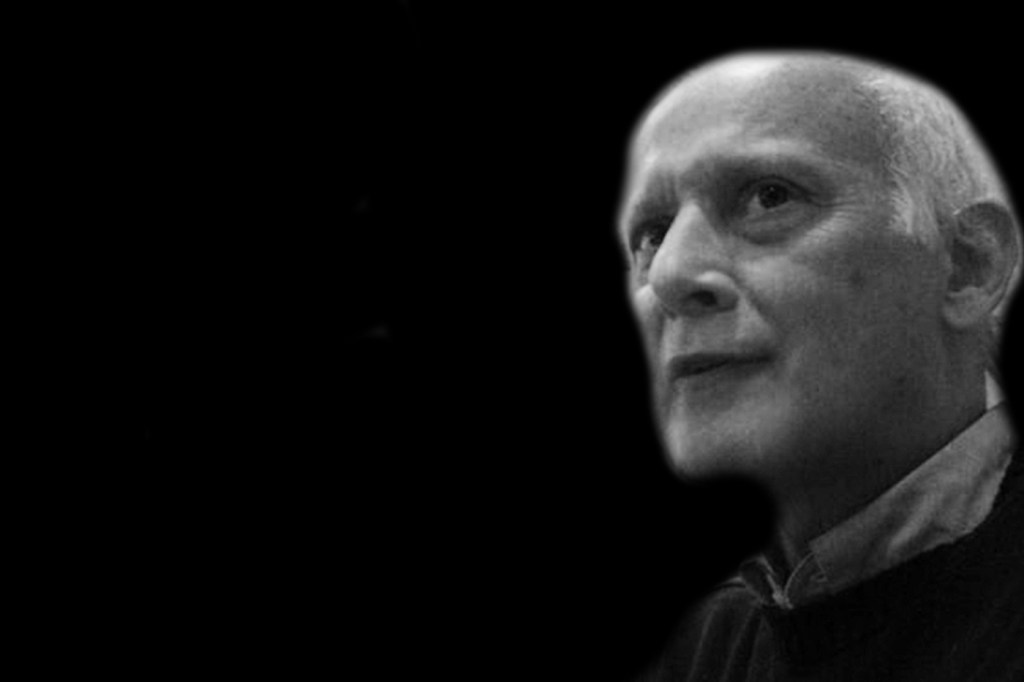Remembering Michael Meyer, the philosophy professor who mentored so many students

His occasional scowl was received by Northeastern philosophy students as an assertion of endearment. He did not cut short their conversations so much as he implored them to frame their arguments more logically. Which, in turn, enabled them to see him as he really was.
Michael Meyer, associate teaching professor in Northeastern’s Department of Philosophy and Religion, died Friday, Aug, 24, at age 72.
“He was the perfect caricature of a philosophy professor that I had in my mind as an 18-year-old,” said Benjamin Miller, now a political science professor at the University of Illinois. “He was bald, with white hair going everywhere, and he would run his hands through his hair and it would get messed up. He would talk to the whole class at length about Platonic dialogue and would just never run out of things to say about it.”
Meyer, who earned his PhD at Boston University, taught thousands of students after moving to Northeastern in 1983. His course load included three courses in each of the fall and spring semesters, said Professor Emeritus William J. DeAngelis, and he often took on an additional class during the summer. He also served as head advisor of the philosophy department.
“He was the go-to guy for our majors and minors,” said DeAngelis, who worked with Meyer for decades. “He spent more time in his office than anyone in the department and was an invaluable resource to students. His willingness to help students far exceeded those of most professors—even those rightly valued for their generosity.
“I very rarely shed tears. I did upon learning of his passing,” DeAngelis said. “I will miss him terribly. His loss to the department will not soon, perhaps never, be remedied.”
Colleagues and students praised the depth of Meyer’s knowledge and his endless desire to know—and share—more. He deepened his appreciation for the ancient texts by immersing himself in contemporary philosophy.
“He was working on his courses constantly and updating them with the most up-to-date scholarship that he was reading,” said Valentina Urbanek, a philosophy professor at the University of Massachusetts Boston. “If you had a question, he knew the answer. He knew everything. He was everybody’s go-to, a philosopher through and through.”
If you had a question, he knew the answer. He knew everything. He was everybody’s go-to, a philosopher through and through.
Valentina Urbanek, Philosophy Professor at the University of Massachusetts Boston
He was of less-than-average height, with a raspy voice that drew students to pay close attention. His wit was dry, his eyes were likely to roll sardonically while others in his class were laughing, and by declining to speak of himself he made himself the subject of much intrigue.
“He would say he had been watching something on TV,” Miller said. “And you would say, oh, Michael Meyer has a TV? What is he like in his apartment watching TV? We would grab onto it.”
John Basl, who was taught by Meyer and then worked alongside him as an assistant professor of philosophy at Northeastern, found himself searching for memorable keepsakes—Meyer’s knowledge of college football, the surprising advice he would give to new students on historical sites to visit in Boston, the time he uncharacteristically broke down laughing while recalling a scene from A Fish Called Wanda.
“I always wondered, how could I be a professor who was so chill that I could just talk about the material—and still be popular?” Basl said.
Integrity and authenticity were sources of Meyer’s charisma. Miller remembers sitting in a barren basement classroom for a Meyer lecture many years ago. “He would be talking to us, and absentmindedly he would write on the table in front of him with chalk,” Miller said. “That really endeared him to me. Then he would lean back on the chalkboard and get chalk on his back.”
His devotion to students was self-evident. Miller remembers an after-class discussion with Meyer that went on for three hours.
“He had no interest in expressing the idea that his time was more valuable than the time I happened to be spending with him,” Miller said. “As a professor, that is not normal. I think all the time, ‘I could be getting work done,’ instead of talking to this 18-year-old. But I never got a smidgen of that from him.
“Even though he would make it clear that what I was saying didn’t make much sense. He had his scowl that he would give to people who he thought were saying stupid things. He did that a lot. That was what we liked about him.”
His scowl was a bridge to better reasoning.
Over the summer, as his health worsened, Meyer clung with ever more resilience to his teaching responsibilities. “One morning in July he got a call from the doctor telling him to come back to the hospital,” said Urbanek. “He went and taught his class, and then went back to the hospital.”
The news of Meyer’s death should not have surprised Basl, and yet he was admittedly unprepared. “I’m not one of these people, when I meet a famous philosopher, that I want to sit and talk about the old days,” Basl said. “With Michael, that wouldn’t have happened anyway. But, man, I wish I had cornered him one day and made him give me the biography of his life.”
